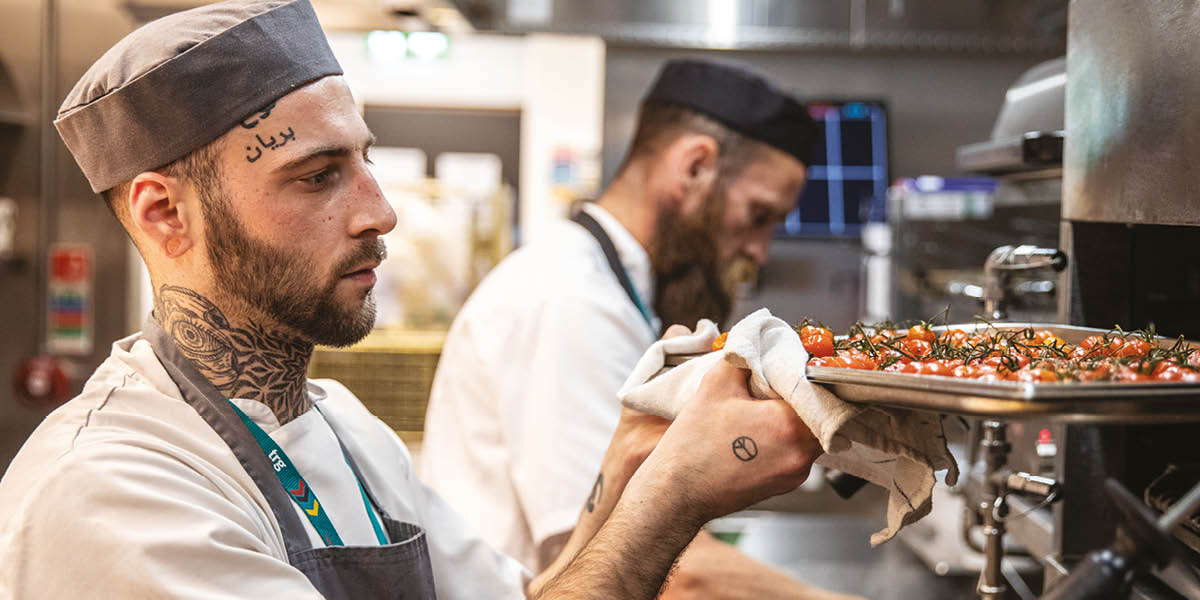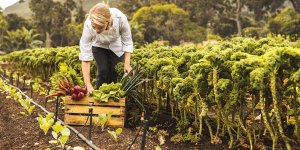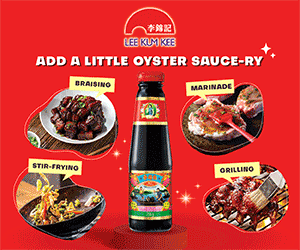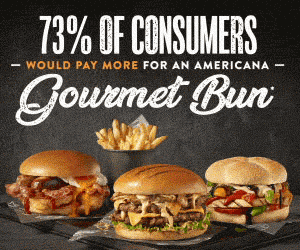Talking heads: Tales from the sustainable kitchen

The Panel
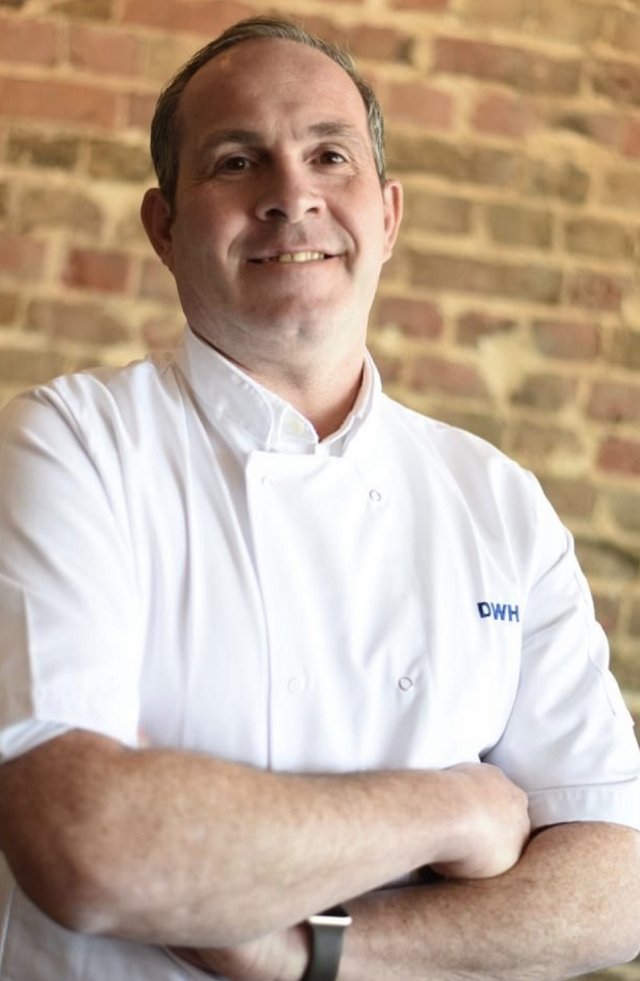
Name: Dean Wilson-Hartles
Job Title: Director of Food and Drinks Development
Company: The Restaurant Group (TRG), owner and operator of brands including Chiquito, Frankie & Benny’s, and Wagamama
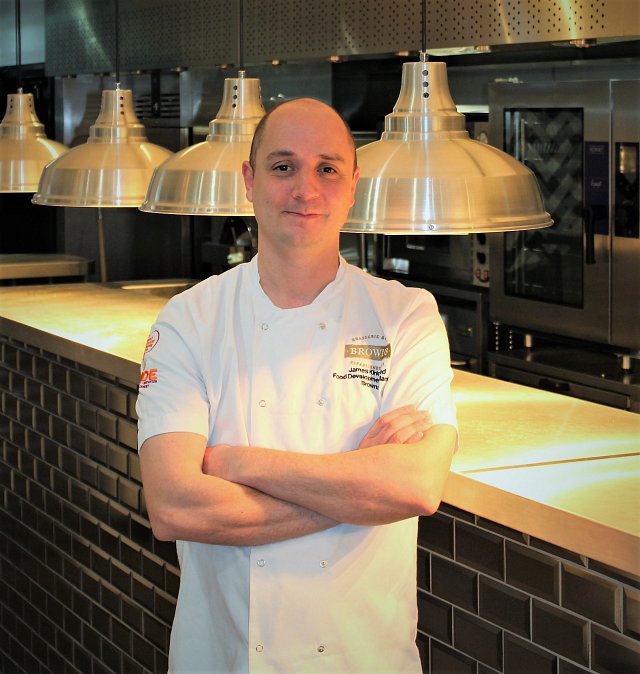
Name: James Kirkwood
Job Title: Food Development Manager
Company: Mitchells & Butlers (M&B), owner and operator of brands including Browns, Miller & Carter Steakhouse, and Stonehouse Pizza & Carvery
Welcome to the first instalment of Talking Heads – a brand-new roundtable series that delves into some of hospitality’s most topical issues. This time, we shine the spotlight on the sustainable kitchen, gaining insight from two of the UK’s most prominent restaurant operators
Dine Out (DO): What are the biggest changes you’ve made in the kitchen and general back-of-house processes to make the operation more sustainable?
Dean Wilson-Hartles (DWH): A focus on energy efficiency. We’ve introduced Sustainability Champions across our sites to encourage more sustainable behaviours (e.g., monitoring energy data versus site targets, sharing best practice).
We’ve also established Fire-Up Charts to ensure equipment is only turned on when needed, as well as Save While You Sleep initiatives focused on reducing energy consumption in non-trading hours. We make a conscious effort to buy efficient kitchen equipment and carry out technology trials to reduce energy consumption. We are always looking at the next innovation in cooking equipment that will help us achieve our road map goals, so we work very closely with our kitchen design team who advise on what’s best for our restaurant estate across leisure and concession within airports .
A focus on waste is another key element. We’ve introduced trials to extend the life of cooking oil, boosted waste separation efforts to improve recycling rates, and set up a plate waste reduction initiative in conjunction with the Sustainable Restaurant Association (e.g., implementation of portioning tools to reduce waste and ease operation during busy service). We have also, as a company, been buying renewable energy for sites where we control energy supplies since Q4 2021.
James Kirkwood (JK): Sustainability and environmental impact are a priority within M&B and, from a kitchen perspective, we have made some significant changes back-of-house to reinforce our commitment as a company for a greener future.
Specifically, one of the main focuses within the operational side of the kitchen has been to reduce gas usage and to significantly invest in electrical equipment – this has included the introduction of induction stoves, infrared grills and electric filtration fryers that reduce oil wastage, to name a few.
Ellie Wrighton, head of kitchen design at M&B, also collaborated with one of our equipment manufacturing partners to test and redevelop their electric chargrill – this not only reaffirmed our green credentials, but the collaboration resulted in a chargrill specific to the needs of our businesses. All of this contributed to M&B recently being awarded best in the industry as Best Sustainable Pub Company at the Publican Awards in April 2023.
This September, our Browns restaurant in Nottingham is due to become the first site fully powered by electric, with the M&B company strategy working towards 75% of the estate by 2033, and the ambition for all 1700+ businesses to be fully electric by 2040.
DO: What is the single most impactful thing kitchen teams should be doing to lower their carbon footprint?
DWH: Kitchen teams are in the best position to notice where there are waste and inefficiencies. Sharing this information is really important and can bring about change that can have a big impact across multiple sites. For example, our plate waste project was initiated using information provided by our sites and working groups comprised of kitchen and front-of-house team members. We used customer demographic forecasting software to inform portion size and understand the core ingredients that produce plate waste, which turned out to be carbohydrates. This allowed us to design menus that use recipe by-products or prep waste.
Plate waste monitoring during a new dish pilot phase should be an integral part of the decision-making process. All dishes should be subject to a plate-waste audit, either via staff or a test kitchen. Managers should set red-lines and targets for plate-waste which then form part of the indicators to assess the suitability of a new dish.
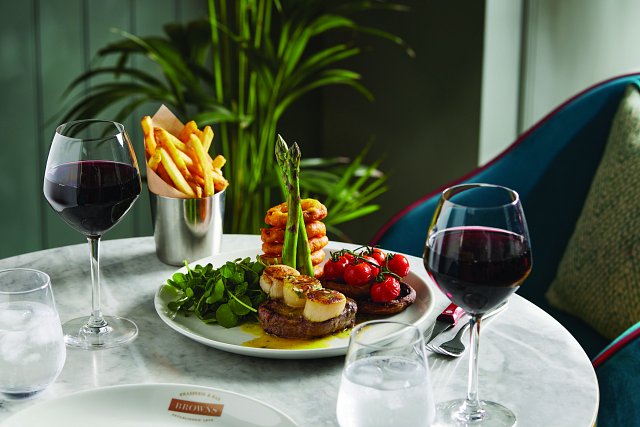
Steak and scallops (Image: Mitchells & Butlers)
JK: The most impactful way kitchen teams can lower their carbon footprint is without a doubt to save as much energy as possible by shutting off equipment and appliances that are not in use. When I first started my career, the first thing chefs would do when starting a morning shift was fire up all the kitchen equipment and then start their day. In recent years, this needed to change and a reset in mentality has been required. Thankfully, people are now a lot more aware and are taking it upon themselves to be more responsible.
Another important point is to look after equipment and ensure it is durable and fit for purpose. Heavy duty equipment is notoriously hard to recycle, so it’s important teams are aware of this.
DO: What has been the biggest
challenge you face in your kitchen’s
sustainability journey?
DWH: One of the biggest challenges we face is that most of our environmental impact sits within our supply chain, so is outside of our direct control. The way we are overcoming this is by working closely with our suppliers to support them to become more sustainable, and working together to develop and source more sustainable products without compromising quality. All eggs used in our restaurants are free range, and we are committed to ensuring that eggs used as an ingredient in our UK supply chain will be caged free or free range by the end of 2023.
We want every one of our suppliers to join in TRG’s journey. We can all learn from each other, that’s the key message. If we can take little nuggets from everyone, it helps us all along the way.
JK: To say the last few years have been challenging as a chef would be putting it mildly. With food and labour costs sky high, it has been a tricky world to navigate.
Staffing shortages have also been extremely challenging and this often leads to unintentional wastage. A way of addressing this has been to offer reduced menus where needed, and to gain support from our supplier base with certain products without compromising the freshness of the offer.
I am pragmatic about these challenges though as, within my role, I am fortunate to be a driver of innovation. I will always push for ethically sourced products with provenance and a low carbon footprint, not least because it fulfils what I would want to buy as a consumer.
DO: How have you tackled menu development and adapted cooking processes to minimise the environmental impact?
DWH: Consumers want the industry to take on the hard work for them. Ultimately, there will be a new wave of climate-led innovation that cause us to phase out the ingredients and practices that are most carbon intensive. But it’s really difficult to change habits on food – they are built up over years, sometimes decades. If you can present existing products in a more sustainable way, that’s great for consumers as they can carry on leading their lives. The industry needs to meet people where they are – if they want spaghetti Bolognese, we need to give them that, even if it still includes meat. We don’t want everyone to think that they have to be vegan. It’s about using less but better meat, expanding our diets and empowering chefs to look at how they can reformulate top selling recipes.
We in leisure and concession are looking at menus all the time. We really focus on the reduction of deep-fried foods where possible, and try and add in more plant-based options – especially in Veganuary, which has been very successful over the past few years. But guests will always want to come in for a burger or fajitas, so consumer education is needed. We need to get them to buy into what we are doing.
JK: When it comes to using new and innovative equipment, for chefs that have cooked on gas stoves all their lives, there is a fear of change. There’s an apprehension of having to relearn something they’ve done the same way, day in, day out for years. In my experience, I have seen that it doesn’t take long to pick up and adapt to these cooking methods. We must embrace this – it’s the future.
From a menu development perspective, we will always look to have a seasonal core running through each menu. This ensures fresh produce is at its peak and most abundant. I also challenge suppliers to use British ingredients with provenance and consider pack sizes and weekly volumes to reduce packaging and frequency of deliveries.
A lot of consideration also goes into menu engineering. I will often try to cross-utilise products – if you take a parsnip, it can be roasted, puréed or made into crisps and put on three separate dishes across multiple platforms. This increases throughput, minimises waste and reduces the number of products being delivered to the business.
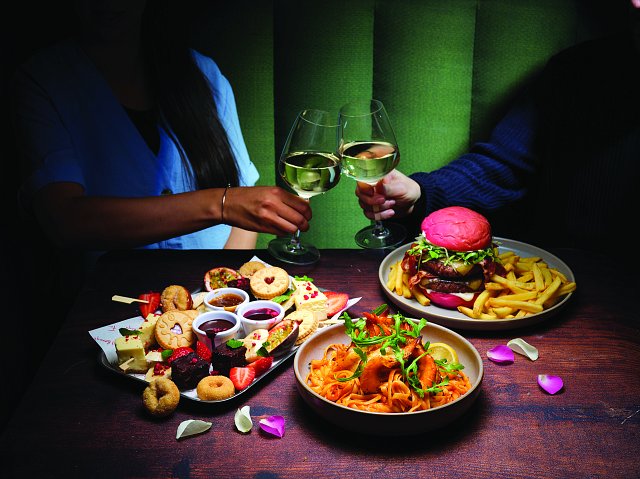
Dating in style with TRG (Image: The Restaurant Group)
DO: How have you dealt with team training to ensure everyone’s on board to help achieve the business’s green goals?
DWH: Our Sustainability Champions help engage our teams at site level. We also have an online learning platform where teams can access training covering sustainability topics, including waste and recycling. We’re also looking at rolling out more training specific to food waste.
We need to be talking about our green targets with teams on a regular basis so it naturally slips into the day-to-day running of the business. We are still in the early stages, but teams are really starting to engage with our targets and asking lots of questions on provence of food and how far it travels, packaging, how to prevent waste and how to inspire others to waste less and repurpose more.
JK: Twice yearly, in most of our businesses, we carry out district training. This is an important date in the diary for all head chefs and sous chefs, who attend a full day at our training academy. Here, we go into detail about the new menu and highlight the work, thought processes and innovation that has formed it. This is a fantastic opportunity to fine-tune the cookbooks, discuss new processes and take on board feedback. Sustainability, carbon footprint and social responsibility have become increasingly more important touch points during these meetings and an ongoing open dialogue with the frontline teams is key, as we are often sharing knowledge and experiences. To keep consistent, our training team put together digital training material which is sent to each business to reaffirm the message.
In addition to menu training, we also have a designated Energy Ambassador team who individually have their own districts to look after. Their role sees them visit sites and deliver face-to-face training to individual team members, raise awareness on how to lower carbon footprint and adhere to a best practice. These teams also have access to analytical information and can advise on a site-by-site level where any opportunities to reduce energy consumption arise.
In the next six months we will also be carrying out ‘immersion sessions’ at our training centre. This will be a way of introducing teams to new electrical equipment and familiarising them before they are implemented across the business.


